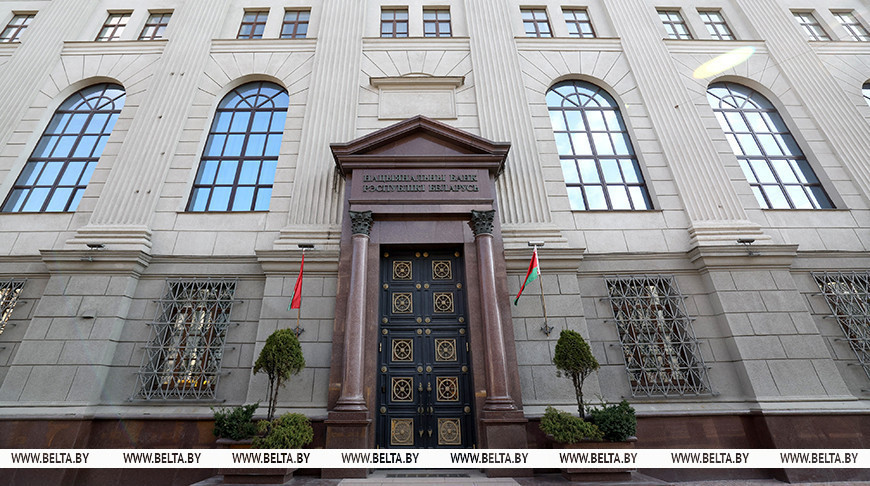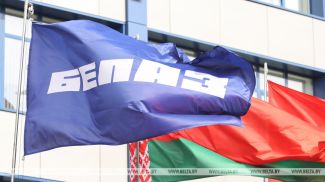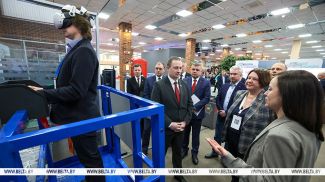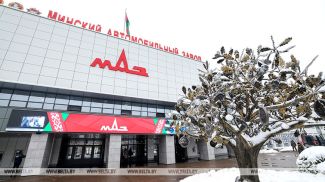
MINSK, 30 October (BelTA) - The draft program for social and economic development for 2026-2030 has been significantly shortened after revision, Andrei Kartun, Deputy Chairman of the Board of the National Bank, told the media ahead of the final meeting of the working group for finalizing the draft, BelTA has learned.
According to Andrei Kartun, there was very little time to finalize the program, only about a month. “We split into subgroups focused on specialized areas. Through several meetings with each group, we reviewed the main tasks and indicators, discussed what was still missing or had been overlooked. The main goal was to make the document as clear and ineligible as possible for all categories of citizens and specialists,” he explained.
The deputy chairman stated that the draft had been significantly shortened by about fifteen pages. “We removed highly specialized tasks, such as 'reducing minimally invasive surgeries by one and a half times.' It is unlikely that this figure would mean anything to the general public. However, work on these tasks will continue,” he cited as an example.
According to Andrei Kartun, there was very little time to finalize the program, only about a month. “We split into subgroups focused on specialized areas. Through several meetings with each group, we reviewed the main tasks and indicators, discussed what was still missing or had been overlooked. The main goal was to make the document as clear and ineligible as possible for all categories of citizens and specialists,” he explained.
The deputy chairman stated that the draft had been significantly shortened by about fifteen pages. “We removed highly specialized tasks, such as 'reducing minimally invasive surgeries by one and a half times.' It is unlikely that this figure would mean anything to the general public. However, work on these tasks will continue,” he cited as an example.
The deputy chairperson emphasized that the main directions of the program have remained unchanged. “Each direction has curators - the respective vice premiers. The implementation mechanism will be further carried out within sectoral state programs. The main task is broken down into several highly specialized ones, each of which will be the responsibility of a specific minister,” said Andrei Kartun.
The working group retained the program's core elements, thoroughly revised the indicators, simplifying and clarifying them. “If there were previously about 120 of them, now there are approximately 50 - significantly fewer. This was done to avoid overloading the program with unnecessary metrics. Some sections have been excluded or reformatted, and new important topics have been added, for example, in industry. This refers to the tasks of increasing science-intensity, the innovativeness of the economy, and technological advancement. Whereas before there was an abstract task of ‘quality education’, the focus is now on practice-oriented education that meets modern requirements,” he pointed out.
The tasks in social policy are also being specified: measures to increase the birth rate and life expectancy, and new social standards to improve the quality of life for Belarusians. Andrei Kartun stressed that the program's main goal is to create conditions so that it is comfortable to live, work, and develop in any part of the country.













